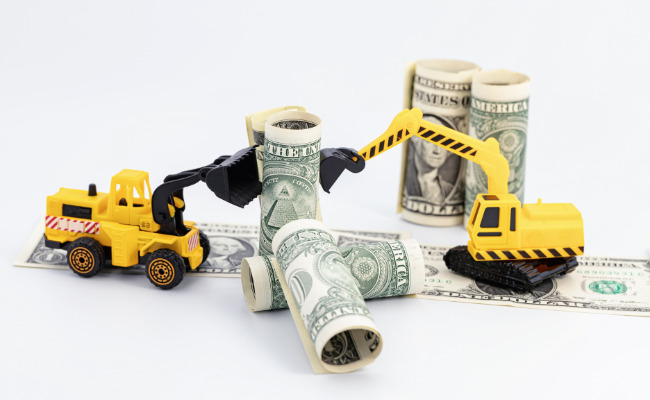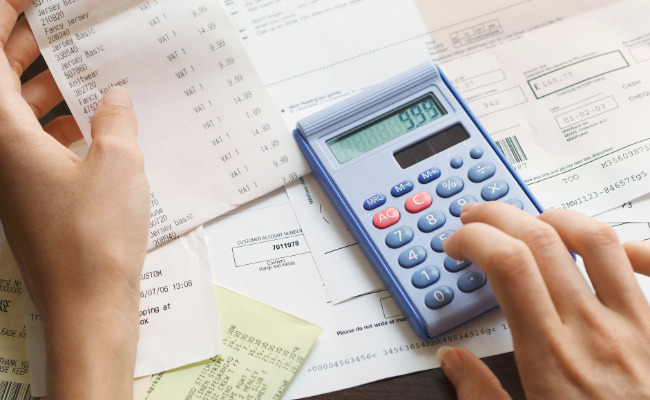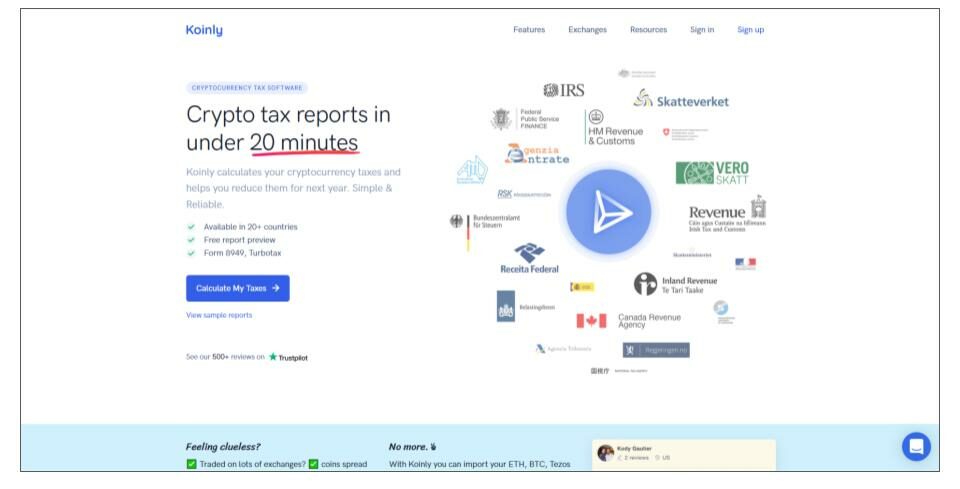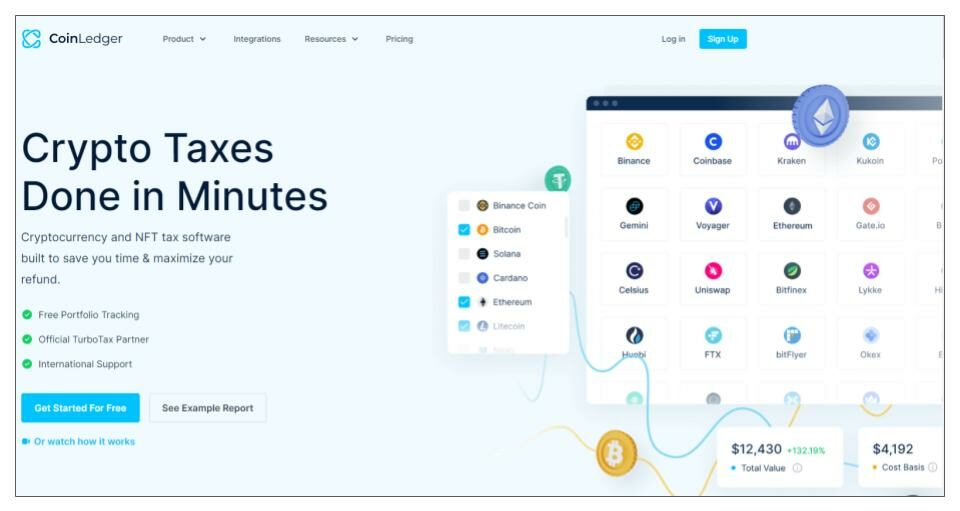Whether you are mining on your gaming PC or you have multiple rigs, you should calculate mining profits. Learning how to track your revenue and expenses will make you more money and much happier come tax season.
December 27th 2021| Mike Humphrey
Table of Contents
Mining Profits

No matter the size of your mining farm, you should be thinking of it as a business. Whether you are running a single GPU, or 1,000 ASICs, you need to track your profit. Thinking about your revenue and expenses will help you to maximize your returns. Businesses also have the added benefit of writing off some of their expenses come tax season (this means subtracting expenses from your income before the tax man takes a percentage). Think like a business, pay taxes on profits not revenue. Employees pay taxes and then cover expenses, businesses do the opposite.
Profit = Revenue – Expenses
Mining Revenue
Revenue is the cryptocurrency deposited in your wallet from mining. This is relatively straightforward, and can often be tracked manually, or exported directly from the mining pool(s) you have used. If however, you switch pools or coins often, this can become much more complex.
Mine Pool Deposits
For tax purposes, cryptocurrency is considered and asset and a taxable transaction occurs any time an asset is bought or sold. This includes when a deposit is made to your wallet. This means for you must record the value of the asset at the time of the transaction (you will need to use the coin price at the time of the deposit). Even for small scale crypto miners this can become a challenge to track.
Trades and Withdrawals
Any time you sell or trade your cryptocurrency, you are selling an asset. This is a capital gain or a capital loss that must be recorded. The price difference between when you mined the cryptocurrency, and when it was sold is considered revenue. You must keep a record of all transaction, and the gains or losses that resulted.
Mining Expenses

For a business, an expense is any cost that was required to run the business. This means any cost paid to run your farm could be an expense, and could be subtracted from your revenue prior to paying taxes. This is the beauty of thinking of your farm as a business. Expenses can be split into 2 general categories operating expenses, and capital expenses. Operating expenses are ongoing costs required to run your farm, for example electricity. Capital expenses on the other hand are expenses that are paid upfront, but will generate revenue in the future. An example of this is a video card that has a large upfront cost, but will make you money for several years. The goal with accounting and taxes is to match the time of your expenses with the time it made you money. Capital expenses allow you to store costs for future write-offs.
Operating Expenses
For a mine your primary operating expense is electricity. You may also be able to claim smaller purchases as expenses as well. This depends on the tax laws in your jurisdiction. Be sure to speak with an account about what expenses can be claimed as capital vs. operating.
Example Operating Expenses
- Electricity
- Rent/Mortgage – If you rent space for your farm this may be considered an operating expense. You may also be able to write off a portion of your mortgage payment, based on the space that your farm takes up in your home.
- Miscellaneous one-off expenses
How to Track Your Electricity
- Measure at the wall – Use a smart plug or meter to track and record your power usage
- Estimate using whattomine and your power costs
Capital Expense
Capital expenses are usually larger expenses, that will generate revenue across multiple tax time windows. Video cards are a good example, but check with your accountant.
Examples
- Video Cards
- Cases
- Fans
- Power Supplies
You may not be able to claim all of the above as capital expenses depending on the laws that regulate your jurisdiction.
How to Track You Mining Profits
-
Manually
Manual tracking of your revenue and expenses is very possible. Many small businesses use Excel or Google sheets to manage their books. If you are manually tracking your profits, it is recommend that you update your mining revenue on a monthly basis. Take one day a month to record (or download) all of your mining payouts. Record them in an Excel sheet, with the daily price in your currency of the mining payout. On a second sheet, record all of your expenses; the date the expense was incurred, what the expense was, the vendor it was purchased from and how the expense was paid (credit card, cash etc). Make sure to keep your receipts as you may need them later for your accountant, or if you get audited. If you take the time once a month to record your revenue and your expenses you can track how well your farm is performing. When tax season arrives, you will have the whole year recorded and save yourself the headache.
We have created a simple spreadsheet to help you track your income and expenses. Your accountant may also have a better template that they prefer you use. The key is to make sure you are recording as much information as possible. It’s very easy to loose track of a receipt, or to forget why you made a purchase. If you record everything as it happens, you have the option of removing something if it cannot be claimed, it is much harder to get something back if it hasn’t been recorded.
-
Software
One of the great things about the blockchain is the ability to track transactions. Doing this manually is possible, but it requires you to use API’s to import information, and it can be quite daunting. Luckily however, this is a recognized issues and several software solutions have been developed to make this easier. Note, even when using software to track your revenue, it will not track your expenses. Expense tracking will need to be done manually through Excel or through tracking software like Quickbooks. Set up a business account and business credit card, and you will be able to differentiate personal and business purchases. You will still need to keep all of your receipts in order to justify the expenses in the case of an audit. Below is a list of several online tools that can be used to both track your profits and taxable income from your mining operation.
-
-
Cointracking.info
 CoinTracking.info is an online software tool that will analyze your portfolio, and generate real-time reports on profits, loss and total value. It supports over 14,600 coins and has more than 12 years of historical data.
CoinTracking.info is an online software tool that will analyze your portfolio, and generate real-time reports on profits, loss and total value. It supports over 14,600 coins and has more than 12 years of historical data.Benefits
- 25 customizable reports
- Easily import from 110+ exchanges or directly from the blockchain
- Export data to Excel
- Tax reports & laws for 100+ countries
- Track capital gains, income, mining returns and more
-
Koinly.io
Koinly is cryptocurrency tracking software for taxes. It will import your transaction history from over 300+ exchanges and wallets, and will create tax documents for reporting. It supports tax reporting for over 20+ countries.
Benefits
- Easy import from 300+ exchanges and wallets
- Track your portfolio and ROI
- Create and download tax documents directly to your accounting software
- Supports 20+ Tax jurisdictions
-
-
-
Coinledger.io

Coinledger.io is tracking software developed to save you time and headache when doing your taxes. It is a trusted TurboTax partner and can easily import all of your historical data.
Benefits
- Easily import from a wallet, a DeFi protocol, or an exchanges
- International tax reporting
- Export to Turbo Tax
- Cryptocurrency tax guides
-
-
FAQ
Do I have to pay taxes on cryptocurrency?
Yes, cryptocurrency profits are considered income, and you will be required to pay taxes on them.
Can I track my profits manually?
Yes, manual tracking is possible. If however, you are running a larger operation and/or take part in trading/DeFi, it is probably worth your time to consider using software.
Do I need an accountant?
For a small mining operation you may be able to manage your taxes without an accountant. However, a good accountant who is familiar with the tax laws governing cryptocurrency can be well worth the cost. The complexity of filing taxes for a business, versus an individual make an accountant a good investment. FYI, you may be able to write-off the cost of the accountant against your revenue.
Do you use tracking software to manage your crypto farm? Let us know in the comments.
Hi I’m Mike, an active crypto investor DeFi enthusiast and crypto miner. I have been involved in crypto since March of 2021 and in DeFi since May 2021.
I’m also an avid outdoor adventurer!


